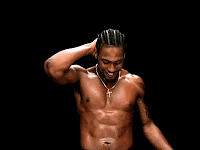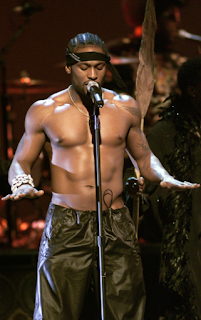.
Related Off-site Links:
GOP Sen. Alexander to Vote Against Witnesses; Trump Impeachment Trial Could End Friday – Bobby Allyn (NPR News, January 30, 2020).
“Apologia for Authoritarianism”: Trump Lawyer Argues President Can Do Whatever He Wants to Boost Reelection Chances – Jake Johnson (Common Dreams, January 30, 2020).
Senate Rejects Witnesses in Trump Trial, Ensuring Acquittal – Lisa Mascaro, Eric Tucker, and Zeke Miller (PBS Newshour, January 31, 2020).
Trump Impeachment Is a McCarthy-Era Turning Point. Can The U.S. Survive? – Kenneth Foard McCallion (Common Dreams, January 31, 2020).
“A Crisis for Democracy”: Senate Votes Against Hearing From Witnesses – Eoin Higgins (Common Dreams, January 31, 2020).
UPDATE: The Abdication of Senate Republicans – Michael Hamar (Michael-In-Norfolk, February 1, 2020).
See also the previous Wild Reed posts:
• Quotes of Note Regarding the Impeachment of President Trump
• Progressive Perspectives on Corruption in U.S. Politics
• Insightful Perspectives on the Kavanaugh/Ford Hearing
• Trump's Playbook
• Progressive Perspectives on the Rise of Donald Trump
• Progressive Perspectives on the Election of Donald Trump as President of the United States
• On International Human Rights Day, Saying “No” to Donald Trump and His Fascist Agenda
• Trump's America: Normalized White Supremacy and a Rising Tide of Racist Violence
Image: The final vote on witnesses for President Donald Trump's impeachment trial, Friday, January 31, 2020. (Photo: CSPAN/Twitter)
More than a year after Brett Kavanaugh’s confirmation, as Trump himself now stands trial in the Senate, Mitch McConnell, Lindsay Graham, and other Republicans have gone out of their way to rig the impeachment trial in Trump’s favor in order to guard him against damaging new evidence and testimony.
On January 21, McConnell called the House investigation (which Trump and his attorneys refused to participate in despite invitations from House leaders) an “unfair” process, arguing that Democrats should not be allowed to force the Senate to agree to admit new evidence for the trial or call witnesses. Two days later, Trump tweeted that the House impeachment hearings were the “Most unfair & corrupt . . . in Congressional history!”
The evidence leaves little doubt that Trump committed the abuses for which he stands accused, and his defense has often waffled between “it’s not a crime” and false claims that there is no evidence at all. On January 24, Senator Lindsey Graham, a Trump ally, claimed that Trump’s attempted extortion of Ukraine’s president was simply indicative of “good government.” The White House and Trump’s Republican defenders have also tried to argue that Democrats have not interviewed key direct witnesses, knowing full well Trump has ordered every single witness congressional investigators have sought not to testify.
Perhaps none of Trump’s defenders, though, have gotten closer to the truth than Republican US Senator Kelly Loeffler. Before she assumed office in early January, the Georgia business executive espoused some of the same race-based demagoguery that made Trump a right-wing hero, warning in an op-ed that Democrats wanted Trump out of the way so they could unleash “socialism” on the country and let “Mexican drug cartels” roam free. Loeffler also offered what she considers the real motive behind Trump’s impeachment.
“The left’s impeachment circus is about more than just overturning an election, but our way of life,” Loeffler wrote, using a segregation-era talking-point that “spoke directly to what (segregationists) considered a unique and practical way to preserve white supremacy,” historian Stephanie Rolph told DSV for that story. While examining old newspaper stories from the 1940s through the 1960s, DSV found thousands of instances in which segregationists used “our way of life” as coded language for “white supremacy.”
For many, Trump is the ultimate poster boy for the power of white supremacy and patriarchy to elevate even the most subpar of White men well beyond the station in life they have earned, and his failure would represent the unraveling of a system upon which countless men like him desperately depend.
– Ashton Pittman
Excerpted from “The Right of Subpar White Men
to Wield Power and Live Above the Law is on Trial”
Deep South Voice
January 27, 2020
Excerpted from “The Right of Subpar White Men
to Wield Power and Live Above the Law is on Trial”
Deep South Voice
January 27, 2020
Friends, [Republican US Senator] Lamar Alexander's decision [to vote against witnesses at Trump's trial] is the end. The Trump-McConnell-Fox News Party has decided to finish their charade of a Senate trial, and cover up any official account of Trump's dirty work forever.
It's now up to the rest of us to remove the tyrant the old-fashioned way, at the ballot box in November. Yes, I know: The Electoral College, the Kremlin, and Trump's own dirty tricks will make it difficult. But we have no other choice. The fate of our democracy, and of the society and world we want to leave our children and grandchildren, depend on it.
Our Founders carefully constructed Constitutional levies that would protect us from a dictator. Unless something unexpected happens in the Senate tomorrow, it’s time to realize all the levies have fallen. There’s only one thing left now to protect our democracy – and that’s voting on November 3. It’s time for We the People to take care of this now.
One of the most important things in life is taking responsibility for our part when things go wrong. And in the final analysis, none of this current crisis would’ve happened had so many of us not checked out and been chronically politically disengaged over the last few decades. The good thing about all this – and there IS a good thing – is how many people are politically waking up, and how many more people will be waking up over the next few months. No more “I’m not political.” No more giving in to the convenience of cynicism. No more thinking “other people are handling it.” Those days are over. And for the spiritual seekers among us – I’ve always felt we should be the last people sitting out the great social, political and economic issues. Spirituality doesn’t mean we’re to look the other way from darkness; it means we’re to be the light that casts out darkness.
Some people say, “But what you look at expands.” That is such a ridiculous platitude when misused. Actually, some things expand BECAUSE you’re not looking at them! There’s a difference between transcendence and denial. Are we supposed to love Donald Trump? In some impersonal way, yes. But sometimes Love says “No.” And such a time is now.
Related Off-site Links:
GOP Sen. Alexander to Vote Against Witnesses; Trump Impeachment Trial Could End Friday – Bobby Allyn (NPR News, January 30, 2020).
“Apologia for Authoritarianism”: Trump Lawyer Argues President Can Do Whatever He Wants to Boost Reelection Chances – Jake Johnson (Common Dreams, January 30, 2020).
Senate Rejects Witnesses in Trump Trial, Ensuring Acquittal – Lisa Mascaro, Eric Tucker, and Zeke Miller (PBS Newshour, January 31, 2020).
Trump Impeachment Is a McCarthy-Era Turning Point. Can The U.S. Survive? – Kenneth Foard McCallion (Common Dreams, January 31, 2020).
“A Crisis for Democracy”: Senate Votes Against Hearing From Witnesses – Eoin Higgins (Common Dreams, January 31, 2020).
UPDATE: The Abdication of Senate Republicans – Michael Hamar (Michael-In-Norfolk, February 1, 2020).
See also the previous Wild Reed posts:
• Quotes of Note Regarding the Impeachment of President Trump
• Progressive Perspectives on Corruption in U.S. Politics
• Insightful Perspectives on the Kavanaugh/Ford Hearing
• Trump's Playbook
• Progressive Perspectives on the Rise of Donald Trump
• Progressive Perspectives on the Election of Donald Trump as President of the United States
• On International Human Rights Day, Saying “No” to Donald Trump and His Fascist Agenda
• Trump's America: Normalized White Supremacy and a Rising Tide of Racist Violence
Image: The final vote on witnesses for President Donald Trump's impeachment trial, Friday, January 31, 2020. (Photo: CSPAN/Twitter)































































